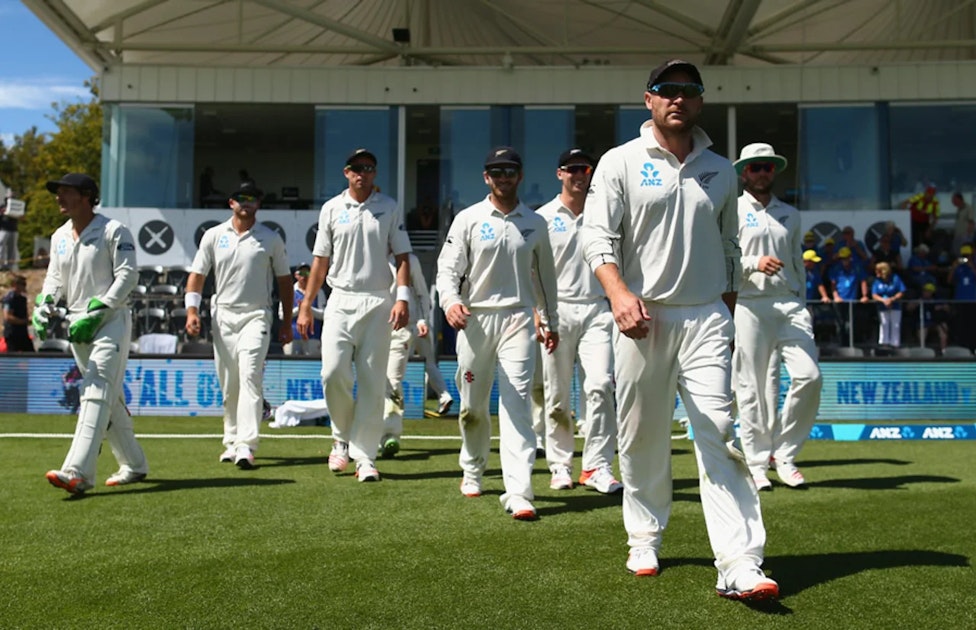 ON THIS DAY
ON THIS DAY“It was a beautiful day but the pitch at Newlands looked a touch green. I went out for toss and decided we will bat. I wanted to make a strong statement - to my team and also the opposition that we are not gonna be afraid. 19 overs and two balls later, we were all out for 45,” said Brendon McCullum about his first day as New Zealand’s full-time Test captain in the Colin Cowdrey lecture in 2016.
On this day in 2013, exactly 11 years ago, Brendon McCullum walked out of the dressing room for the first time as New Zealand's full-time captain. He had become New Zealand's skipper in controversial circumstances, taking the captaincy from Ross Taylor. Taylor was so disappointed that he did not tour South Africa with the side. Back home, the Kiwi cricket legend, Martin Crowe was so disgusted by the turn of events that he burnt his Blackcaps' blazer.
Coming back to the match, the first Test was at Cape Town, which has the beautiful background of Table Mountain. The wicket was a touch green, but according to a theory, if the Table Mountain is covered with clouds - which means if the conditions are overcast - one should opt to bowl first.
That day, the sky was absolutely clear. Taking the hint, McCullum felt it is a good chance to make a statement that his team is not afraid of anyone. He won the toss and opted to bat first. Within the first session, he fell flat on his face as New Zealand were bowled out for 45 inside 20 overs. Vernon Philander picked up a five-wicket haul. New Zealand lost by an innings and 27 runs.
It was a false start. But in hindsight, McCullum and New Zealand would prefer it over the Beginner’s Luck, which would later transpire into something a lot less than envisioned.
As it happened with some great teams before, losing out a small battle, irrespective of the degree of embarrassment, can lead to winning the big war. In some examples, England sat down after being blown away for 51 by West Indies in Jamaica in 2009 and became the number 1 Test team in 2011. India rose from the disappointment of the 2007 ODI World Cup. South Africa built a champion team after missing out on the Super Six stage in a home World Cup in 2003.
ALSO READ: Brick by Brick - New Zealand’s WTC run a tribute to their giant leap of faith
For New Zealand, the situation was more dire. In the lead-up to that 2013 Cape Town Test, they had won only five Tests in the preceding three years, two of which were against Zimbabwe. The shift in the leadership role was tumultuous, and now the 45 all-out was definitely rock bottom.
A team meeting was imminent. But in this case, there were no whiteboards or markers, as told by McCullum. Instead, it was an impromptu setup with beers to reach a conclusion. The conclusion was that they were not good enough. Instead of trying to emulate others, they should “personify the traits of New Zealanders - to be humble and hardworking.”
Rest is history: Within the next 13 months, New Zealand had their first big win in Test cricket - beating a strong India team 1-0 at home. McCullum was at the forefront with scores of 224 and 302 in the two-match series. It kickstarted the renaissance of New Zealand cricket. In 2013, their win percentage in Test cricket was only 16.6. In 2014, they won 55.5% of their Tests. In 2015, they made it to their first World Cup final after failing the semifinal hurdle many times in the past.
Fast forward to 2024, the Kiwis have made it to the final of three white-ball World Cups and possess the inaugural World Test Championship trophy. McCullum retired in 2016 but had laid the platform which turned New Zealand cricket from being the dark horses to a force to reckon with for any opposition. Funnily enough, that platform was built on an appalling collapse.